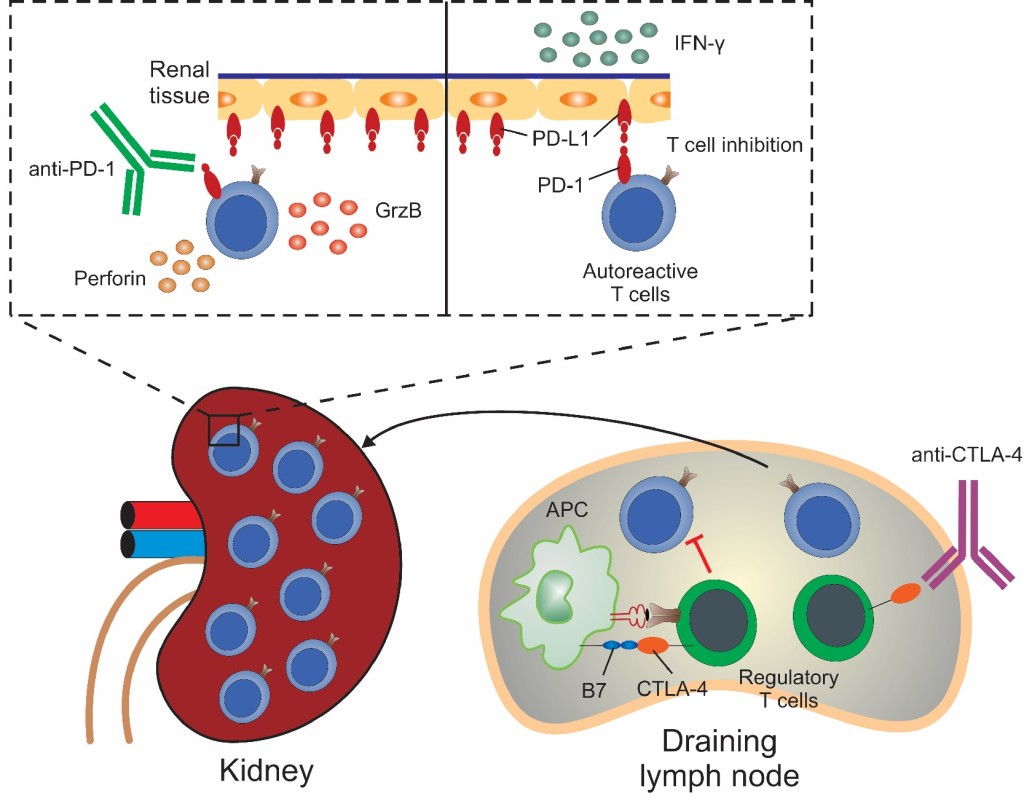Immune-checkpoint inhibitors are emerging as revolutionary drugs for certain malignancies. However, blocking the co-inhibitory signals may lead to immune-related adverse events, mainly in the spectrum of autoimmune diseases including colitis, endocrinopathies and nephritis. Here, we report a case of a 75-year-old man with metastatic malignant melanoma treated with a combination of nivolumab (anti-PD1-antibody) and ipilimumab (anti-CTLA-4 antibody) who developed systemic rash along with severe acute tubulointerstitial nephritis after two doses of combination therapy. Kidney biopsy and peripheral blood immune profile revealed highly proliferative and cytotoxic T cell features. Herein, we discuss the pathophysiology and management of immune checkpoint blockade-related adverse events.
Clin Kidney J. 2016 Jun;9(3):411-7. doi: 10.1093/ckj/sfw024. Epub 2016 May 4.
Severe acute interstitial nephritis after combination immune-checkpoint inhibitor therapy for metastatic melanoma.
Murakami N, Borges TJ, Yamashita M, Riella LV.

